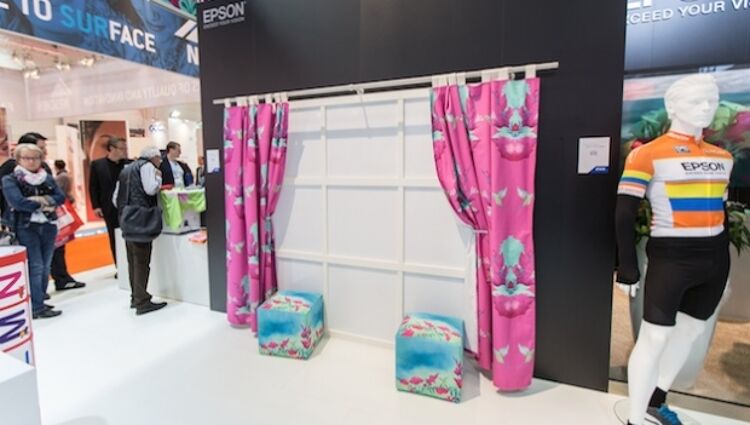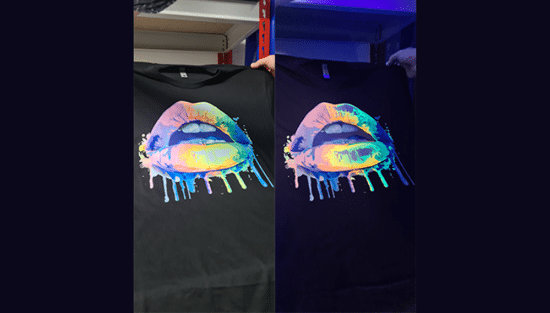FESPA Print Census #SixTrends: 3. The future is customised

FESPA Print Census highlights the evidence that print is evolving from being a manufacturing business to one which is increasingly service orientated.
This change goes hand in hand with a notable move towards customisation. Printers have come to understand that, in today’s world, overcapacity, manufacturing efficiencies and transparent online pricing mean that standard products have become commodities sold at the lowest price denominator to fill available production capacity, even if that means trading unprofitably.
Recognising that this is commercially unsustainable, respondents to our Print Census report a continued gravitation towards customised or even specialist products, enabling them to establish clear unique selling points, attract customer loyalty and command more attractive margins.
Change takes time, and more than a decade after the digital wide format revolution truly took hold in the wide format print sector, non-custom products such as banners, posters, signs and billboards still top the list of products being sold by those surveyed.
But change is happening, and as digital technology continues to make deeper inroads in the vast majority of wide format print businesses, the Census shows us that we can expect to see a further shift away from commodity products and towards customised, high margin applications.
New digital substrates hold one of the keys, and advances in rigid materials, together with increased material handling capability from digital print devices is driving growth in this area, with rigid media now accounting for 25% of output in our survey sample.
Where customisation can truly come in to its own is in decorative applications which by their nature cater to more individual tastes. With digital print, we can respond to a personal interior design brief, or enable a corporate, retail or hospitality environment to quickly and cost-effectively adopt a new aesthetic to reflect seasons or promotional campaigns.
This adoption of digital - and the capability to customise that it confers on printers - is especially evident in the FESPA Print Census responses on the topic of textile print. The survey reveals that 80% of printers are witnessing increased demand for digitally printed garments, textiles for décor and packaging samples.
Digital technology has empowered print. It is no longer about mass reproduction of a single image, but a creative process which enables absolute customisation or personalisation of virtually any surface or environment.
The FESPA Print Census is a global research project undertaken by FESPA in partnership with Infotrends to understand developments in the wide format, screen and digital print community.
The Print Census was funded through FESPA’s Profit for Purpose programme, which reinvests revenues from FESPA’s global events to support printers worldwide with insights, best practice and networking opportunities. The Census was conducted from May 2014 to April 2015, and surveyed over 1200 respondents in 64 countries, both face-to-face and online.
Topics
Interested in joining our community?
Enquire today about joining your local FESPA Association or FESPA Direct
Recent news

Streamlining personalisation with tech: Insights from the SmartHub Conference 2025 speakers
Personalisation Experience 2025 (6 – 9 May 2025, Messe Berlin, Germany) is running its inaugural SmartHub Conference from 6 – 8 May 2025.

Special Effects in DTF: How Neon Inks Are Making Apparel Pop
Neon fluorescent inks are the latest innovation in DTF printing, offering vibrant, eye-catching effects under both daylight and UV light, giving apparel decorators a competitive edge. Testing shows good wash durability, though market perception of added value is still developing. With increasing adoption and ongoing technological advancements, neon represents a significant upgrade for creative customisation.

Unlocking Growth Opportunities in the Printed Personalised Apparel Industry
The printed personalised apparel industry is booming, projected to reach $10.1 billion by 2030. Driven by consumer desire for self-expression and branding needs, technological advancements like DTG/DTF and e-commerce integration are key. Sustainability, eco-friendly materials, and on-demand printing are crucial growth drivers. Businesses leveraging these trends, including AI and social media, have significant commercial potential.

How to grow your business with white ink applications
Opaque white ink is revolutionising signage, vehicle graphics, wallcoverings, short-run and wood packaging, and window blinds by enhancing vibrancy and clarity. This enables printers to offer high-demand, standout products, boosting profit margins. HP Latex white ink applications and their large format printing solutions will be showcased at FESPA 2025 in Berlin.